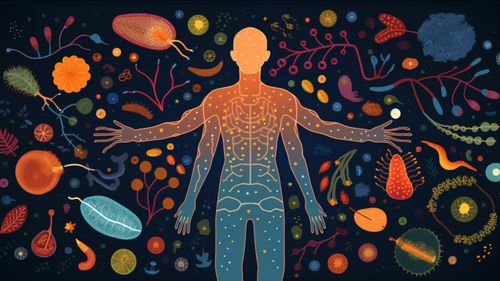Gut Health's Impact on Mental Well-Being: Surprising Connections Between Digestion & Emotions
Feb 12, 2024 · 2 mins read
0
Share

Ever felt "butterflies" in your stomach? That's your gut-brain connection at work. This two-way communication superhighway is a hot topic in neuroscience.
Save
Share
The gut is dubbed the "second brain" for good reason. It's lined with over 100 million nerve cells that not only digest food but also impact your mood.
Save
Share
Serotonin, the "happy hormone," is a VIP in this story. Surprisingly, about 90% of it is produced in your gut, not your brain, influencing emotions and well-being.
Save
Share
Feeling down? Your gut bacteria might be part of the cast. Studies show a less diverse microbiome is linked to negative emotions, while a healthy one can mean happier vibes.
Save
Share
The class system of bacteria in your gut matters. The balance between good and bad bacteria can influence everything from your mood to your immune system.
Save
Share
Stress eating isn't just a phrase; it's science. Chronic stress can mess with your gut-brain axis, leading to mood swings and cravings.
Save
Share
Probiotics might be the new happy pills. Consuming good bacteria can potentially improve your mood and emotional resilience.
Save
Share
The concept of 'gut feelings' is absolutely real. Irritation in your gastrointestinal system can send signals to your brain that trigger mood changes.
Save
Share
A gut-wrenching experience can be literal. Emotional turmoil can lead to physical symptoms like IBS, showing the deep link between gut health and emotions.
Save
Share
Bottom line: nurturing your gut flora could be key to a sunny disposition. A balanced diet, less stress, and maybe some probiotics could keep both your belly and your brain happy.
Save
Share
0